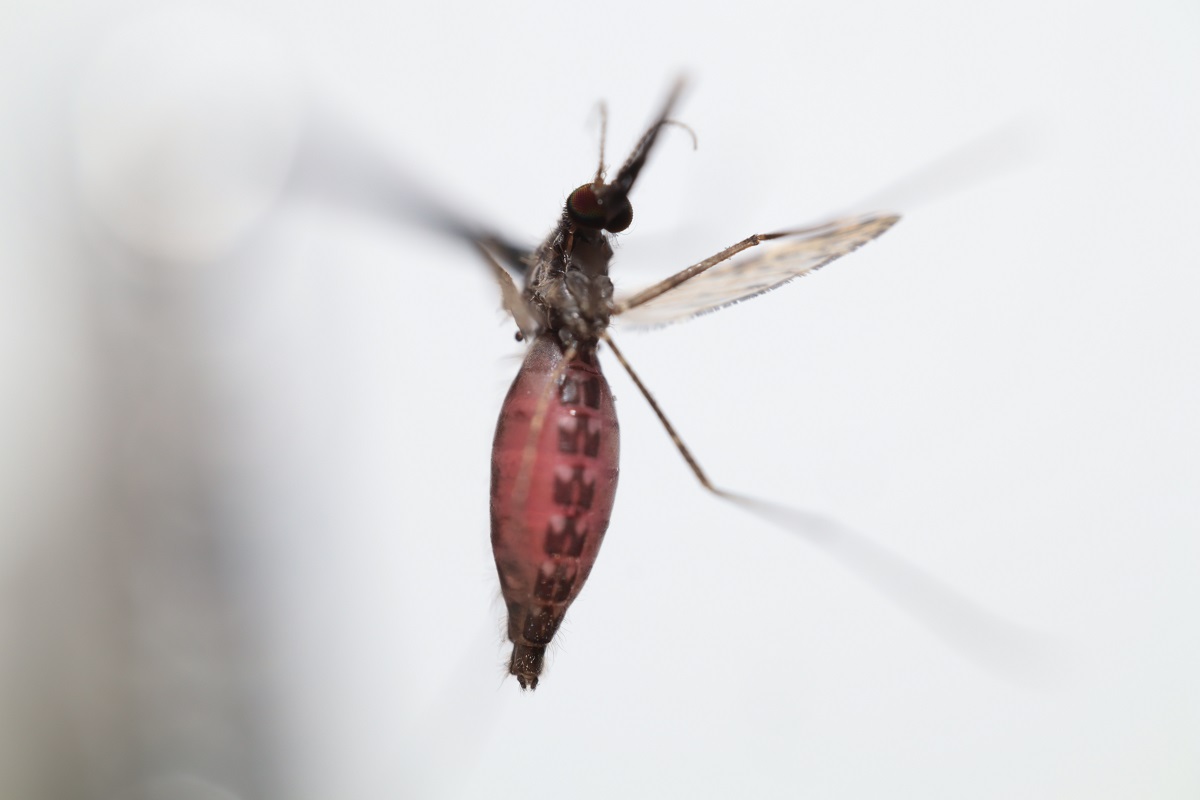
“The males just want to dance around, have fun and enjoy copious amounts of sex and sugar. They are alive for about one week and they literally don’t care about anything else.” So began a talk by NRI’s Associate Professor S. Noushin Emami which she gave on Friday 5 November.
This was part of a TEDx (Technology, Entertainment and Design) session held in the Bath Theatre at the University of Greenwich, London. Produced using an “innovative virtual production technology [which combines live action footage, computer graphics, and old and new presentation techniques] inside a physical theatre space” nine speakers were chosen to “tell stories and share knowledge” with the aim of creating an “immersive space that allows us to accept our vulnerability and enhance human connection.” Here Noushin takes up the story:
“The organisers had seen some of my talks on YouTube so they approached and asked if I’d like to be a part of aTEDx event at the University. In the run-up to the event itself, I wrote my script and sent it to the TEDx organisers and we did some rehearsals. The team was very supportive and I learnt a lot about presenting in a very short time even though I was quite nervous!
To prepare, I took the structure of one of my talks that I’d given previously in Sweden, and added to and altered it to give my TEDx talk – a unique experience as TEDx has a very particular format and way of putting together a story, using clear and entertaining language for a general audience who are very positive and eager to learn – quite different to any academic or specialist conferences I’ve been involved with! I love talking about what I do and I think that in terms of the immediate connection that I made with the audience, this was the best presentation I’ve ever done in my life.
It came at a good time for me as I’ve just had my paper published in Nature Communications Biology on the subject of swapping blood for beetroot to trap and kill mosquitoes without harming other insects. Beetroot juice is a very attractive substance to mosquitoes as it’s the same colour as blood and has an earthy taste. My research showed that by lacing the beetroot with an added trace toxin, we could effectively kill mosquitoes. The beetroot had also been supplemented with HMBPP – a metabolite which is necessary for the survival of Plasmodium, the malaria parasite. We found that this small molecule also works as a transmission signal – using HMBPP, the parasite sends signals to the mosquito, highlighting its successful transmission.
However, beetroot was just part of the story. Female mosquitoes are the ‘dangerous’ ones, as they spread diseases like malaria, so naturally more research has been done on them and their behaviours. But in 2020 I had published another paper in Nature Ecology and Evolution, about male mosquitoes and the intricacies of their sex life. I studied what specific smells attracted them and what prompted them to mate (Anopheles sex pheromone).
For this TEDx talk, I combined the two papers and I kicked off by describing how male mosquitoes just want to dance around, have fun and enjoy copious amounts of sex and sugar. They are alive for about one week and they literally don’t care about anything else! That immediately engaged the audience and lots of people found it amusing.
I then talked about how the behaviour of the female mosquito is different; after they mate and get pregnant, they immediately look for food in the shape of a nice blood meal. That is the time, when they are at their hungriest, for me to lure them in with my toxic beetroot ‘cocktail’; they drink and then they die. To understand in depth how both males and females behave is the key to finding ways to control and kill mosquitoes effectively. Our hope is that this technique will help to control mosquitoes in countries where malaria is most prevalent, as it is affordable, simple, and effective, needs no electricity and only traps and kills mosquito species that are attracted by the malaria parasite signal. I think the audience were intrigued to hear about the actual sex lives of mosquitoes, they found it fascinating. I framed their relationships as romantic, describing how they like to dance around and have sex during sunset!
I hope that my TEDx talk made people think about mosquitoes in a different light, especially the fun-loving, sugar-quaffing, amorous male mosquitoes!”
To find out more about:
Associate Professor Noushin Emami
Natural Resources Institute
TEDx University of Greenwich
Read the 2021 paper in Nature Communications Biology
Read the 2020 paper in Nature Ecology and Evolution

